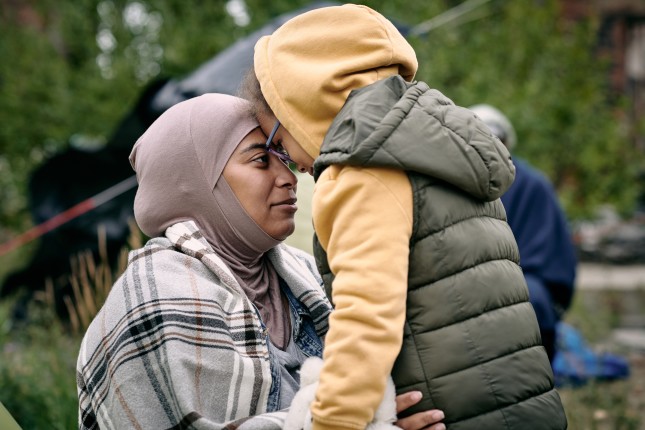-
Pandemic Learning: Migrant Care Workers and Their Families Are Essential in a Post-COVID-19 World (New Report)

“The COVID-19 pandemic has brought into the open two things that much of the world has always assumed but not fully acknowledged: women do the vast majority of caregiving, and caregiving is grossly undervalued. Caregiving is also the fastest-growing economic sector in the world—projected to add 150 million jobs by 2030. Global societal changes, like low birth rates, demographic aging, and an increase in female labor force participation, are basic drivers of the continued growth of this sector. But because in many cultures care work is considered “instinctive” for women—a type of work not requiring skill—it has remained virtually invisible, unpaid or underpaid and unregulated. It is also often stigmatized, especially when relegated to already marginalized and underrepresented populations.” – Pandemic Learning: Migrant Care Workers and Their Families Are Essential in a Post-COVID-19 World
Migrant care work is a key component of this ongoing global care crisis. Many caregivers have been compelled to migrate and work without documentation, but the pandemic has increased their risks, as it has prompted national governments to tighten border restrictions. While the spread of COVID-19 has greatly increased the need for care work everywhere, it has also diminished the number of migrants available to perform it. Additionally, while migrant care workers are being applauded and elevated in stature as part of the “essential workforce” necessary for the overall health of a nation during the pandemic, they actually face greater dangers from the disease than citizen populations. Despite working closely with persons who may themselves be ill, migrant care workers are often denied access to preventive measures such as vaccinations and personal protective equipment (PPE), or medical care if they contract COVID-19. At the same time, they must worry about how members of the families who did not migrate with them are coping with the pandemic, since they, too, are vulnerable and may lack adequate care due to the absence of the migrant care worker. Migrant care workers are competing in a world that has historically undervalued both care work as a sector and care workers as people providing an essential service, and more recently a world that has become increasingly nationalistic and xenophobic.
In Pandemic Learning: Migrant Care Workers and Their Families Are Essential in a Post-COVID-19 World, Sarah B. Barnes (Wilson Center) and Sonya Michel (Advisory Council, Wilson Center) examine the effects of the pandemic on migrant care work, particularly female caregivers and their own families. This white paper details existing programs and policies that are successfully addressing the complexities of migration, care work, and the ongoing pandemic, and put forward a list of recommendations on how governments, civil society, and researchers can seize the moment and use lessons learned during the pandemic to better protect and support migrant care workers and their own families, particularly those family members remaining in the sending country. This white paper was informed by an expert Advisory Council and a private roundtable discussion, hosted by the Wilson Center on migration and care work. (The members of the Advisory Council and the names of all who participated in the roundtable discussion are listed at the end of the white paper.)
Pandemic Learning: Migrant … by The Wilson Center
Taking these existing programs and policies into consideration, the authors propose strategic recommendations around the health and well-being of migrant care workers and their families, revised policies and programs, as well as newly formulated recommendations to inform future policymaking and implementation.
Recommendations to Seize the Focus on Migrant Care Work and Make Lasting Change: (See full report for further detail.)
- Reform immigration laws and regulations to include workers who are in high demand but not considered “high-skilled” workers and increase focus on recognition, reduction, redistribution, representation, reward, rights, and reparation for migrant care workers.
- Rethink the balance between dependence on migrant care workers vs. making these occupations more attractive to nationals.
- Address particular challenges experienced by migrant women due to their intersectional identities, including, but not limited to, gender, race, ethnicity, class, caste, religion, and age.
- Develop health workforce governance to connect health system needs, health labor markets, and individual migrant caregivers to ensure that migrant workers have access to health care services, including vaccinations, sexual and reproductive health, and mental health services, as well as unemployment benefits, housing subsidies, and other emergency funding resources.
- Capitalize on the momentum from other immigrant groups, like nurses and teachers.
- Include migrant care workers in public health and health workforce research to help inform immigration policy and reform. Increase focus on under-studied regions and patterns of migration, like Sub-Saharan Africa, Latin America, and Global South to Global South migration, as well as studies focused on women and vulnerable populations.
Sarah B. Barnes is the Project Director of the Wilson Center’s Maternal Health Initiative. She has written extensively on the gendered dynamics of care work and the need for women’s health and safety to be policy priorities to produce healthier and more sustainable economies.
Dr. Sonya Michel is Professor Emerita for History and Women’s and Gender Studies from the University of Maryland, College Park; former Director of the United States Studies and Senior Scholar at the Wilson Center. Michel has published widely on topics of caregiving, migration, women, gender, and social policy.
Photo Credit: Middle-eastern mother in headscarf touching foreheads with daughter, courtesy of Pressmaster/Shutterstock.com
 A Publication of the Stimson Center.
A Publication of the Stimson Center.



